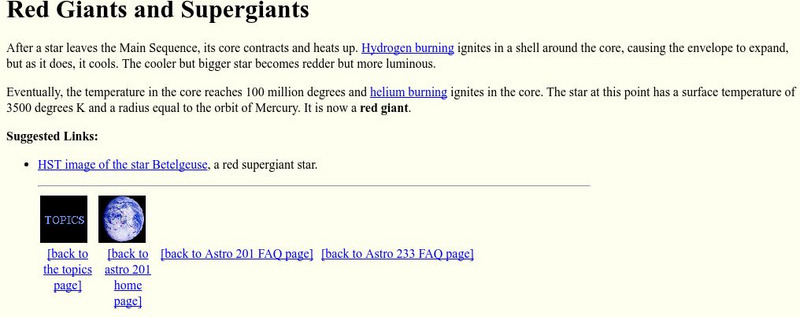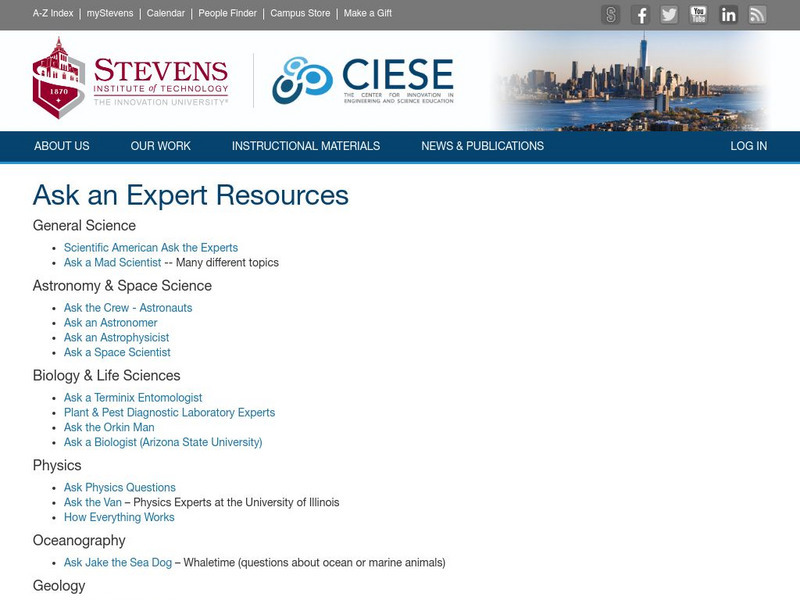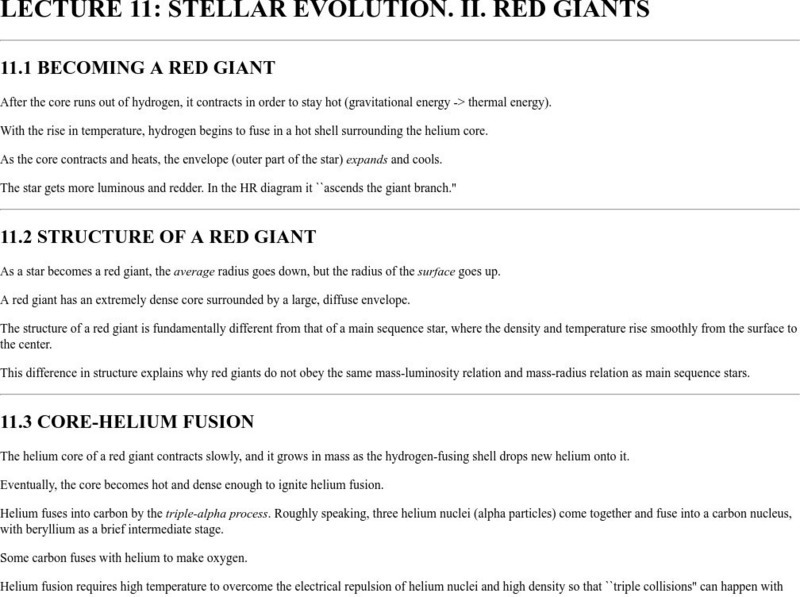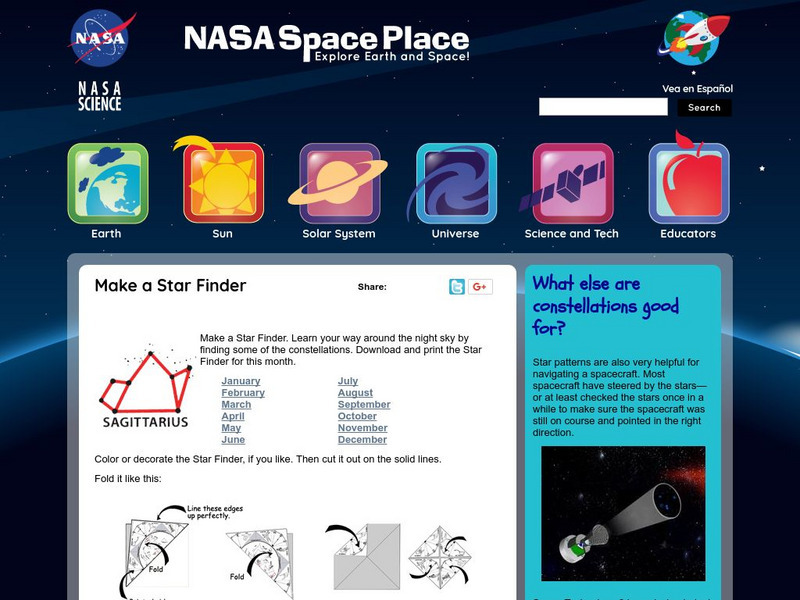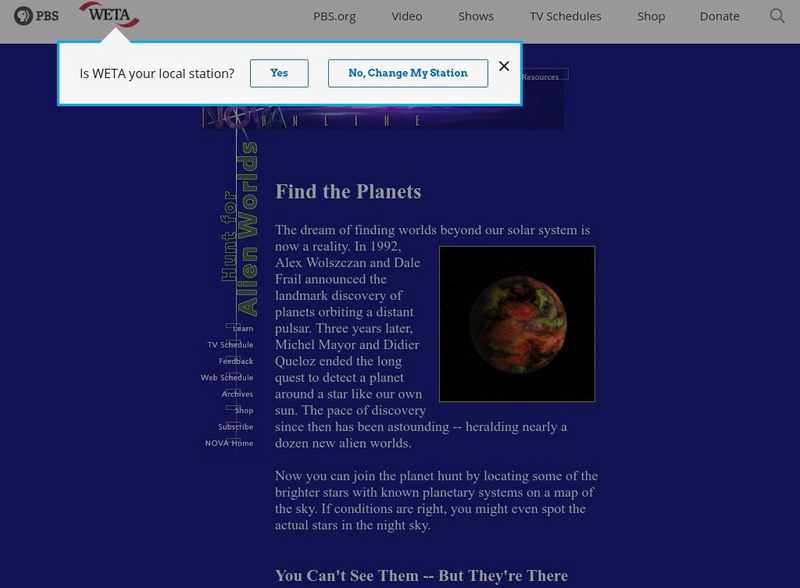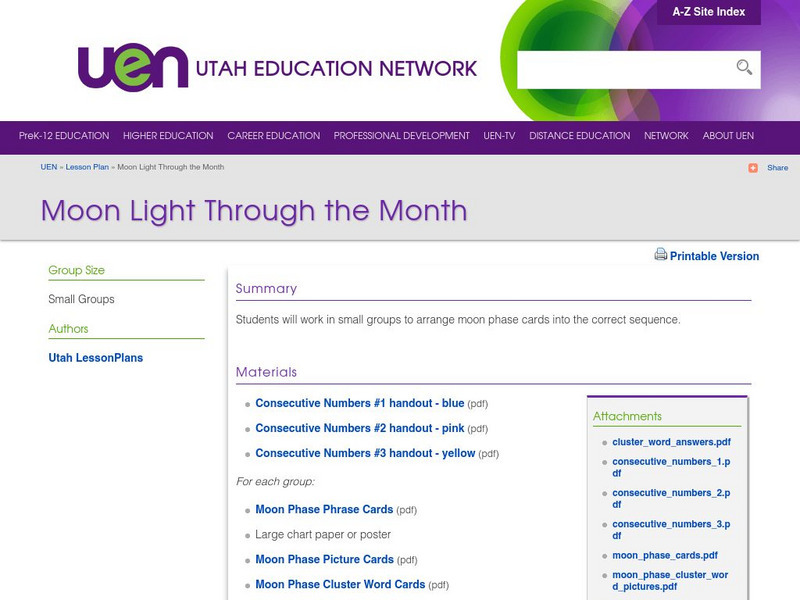Other
Aas Science News: Possible Orphan Black Hole
Article reports on the discovery of a supermassive object 90 million light-years from Earth that may be an orphan black hole.
Cornell University
Cornell University: Astronomy: Red Giants
This Cornell University Astronomy Department site surveys the the hydrogen and helium burning that takes place in the evolution of a red giant. Links to related information.
Famous Scientists
Famous Scientists: Edwin Hubble
Learn about Edwin Hubble, an American astronomer who is known for playing a vital role in the development of extragalactic astronomy.
National High Magnetic Field Laboratory
Magnet Academy: John Daniel Kraus
For a man whose career involved the entire known universe, John Kraus had a remarkably insular upbringing. He was born and raised in Ann Arbor, Michigan, and earned his bachelor's, master's and doctoral degrees in physics, all at the...
Center for Innovation in Engineering and Science Education, Stevens Institute of Technology
Ciese: Educational Links: Ask an Expert Sites
Ever wondered about, well, anything? Get your burning question answered here from reigning experts in General Science, Astronomy and Space Science, Biology and Life Sciences, Physics, Oceanography, Geology, Weather, and Health.
California Institute of Technology
Ipac at Cal Tech/what Are Supernovae?
Basic characteristics and definition, how astronomers study supernovae, the types of supernovae, where they occur, theories about supernovae, what supernovae tell us about the universe, and the effects of supernovae.
University of Chicago
Telescopes at Yerkes Observatory / Virtual Tour
This site describes the difference between reflective and refractive telescopes and includes a virtual tour of Yerkes Observatory which houses the largest refracting telescope in the world.
Other
Jodrell Bank Centre for Astrophysics: A Tutorial on Radio Pulsars
A extensive site that describes the history of the discovery of pulsars along with definitions, characteristics, locations, and distances of pulsars, plus much more.
University of Oregon
Stellar Evolution: White Dwarfs
Brief discussion of white dwarfs, their discovery, and evolution.
NASA
Nasa: Imagine the Universe: Fa Qs on Quasars
A list of answers to many questions related to quasars and active galaxies.
NASA
Nasa: Imagine the Universe: Supernovae (Basic)
A detailed description of a supernova developing from a single massive star. There is a quiz, related links, animation, lesson plans, and an FAQ sheet available also.
NASA
Nasa Star Child: Quasars (Level 2) Information
NASA presents the amount of energy, type of energy, brightness, and the detection of quasars. Provides several examples, pictures, and information.
Ministerio de Educación (Spain)
Ministerio De Educacion: Astronomia Para Ninas Y Ninos
Learn basic astronomy and travel through space. After you finish the lessons you can take the evaluation to obtain the clues needed to play the fun space games.
Ohio State University
Ohio State University: Red Giant Star Lecture Notes
Describes how a star becomes a red giant, the structure of a red giant, core-helium fusion, lifetime predictions, and the position on the HR diagram.
American Museum of Natural History
American Museum of Natural History: Ology: In Pictures: Journey to the Stars
Two astrophysicists present images of stellar phenomena in this resource and explain why stars are so important to the existence of life on Earth.
NASA
Nasa: Marshall Space Flight Center: Chandra
NASA's Chandra X-ray Observatory site features a photograph and explanation of a "cool" black hole in the Andromeda Galaxy (M31).
Other
Planetary Nebulae Observer Home Page
This home page is linked to detailed descriptions of nebulae types, shapes, and structures and their relationship to stellar evolution, a historical perspective on the discovery of nebulae, a gallery of images, and other related resources.
NASA
Nasa: Mission: Science: Electromagnetic Spectrum: Infrared Waves
Infrared light lies between the visible and microwave portions of the electromagnetic spectrum. Infrared light has a range of wavelengths, just like visible light has wavelengths that range from red light to violet.
NASA
Nasa: Make a Star Finder
Learning game and activity that teaches about the constellations by making a star finder to help locate them.
American Association of Physics Teachers
Com Padre Digital Library: Physics to Go: Explore Physics on Your Own
Contains a full physics curriculum with links to games, webcasts, and activities. By creating a free account, students and teachers can create their own personal collection of resources.
PBS
Pbs: Find the Planets
Find out how astronomers locate new planets by observing the traits of the stars they orbit. Get some tips at locating stars with the help of star maps.
Other
Black Holes and Neutron Stars
Contains information about black holes and neutron stars: how they form, what they're like, and how we know they are there.
NPR: National Public Radio
Npr: New Observatory Brings Stars Closer to Earth
A radio story describing the development of the newest technology in telescopes based on an old idea. Images of the 80-acre interferometer are shown on the site.
Utah Education Network
Uen: Moon Light Through the Month
In this lesson, students are asked to order cards showing different phases of the moon. Includes student handouts.
Other popular searches
- Astronomy and Space Science
- Space Science Astronomy
- Space and Astronomy
- Preschool Astronomy/space
- "Astronomy and Space Science
- Astronomy and Space Lesson

